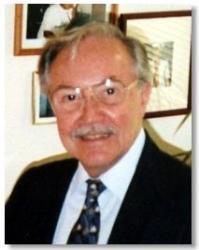Planning worship?
Check out our sister site, ZeteoSearch.org,
for 20+ additional resources related to your search.
- |
User Links
Search Results
[O Lord, come and save us]
Appears in 2 hymnals Composer and/or Arranger: RL Tune Key: C Major Incipit: 56176 5 Used With Text: O Lord, come and save us
[O Lord, come and save us]
O Lord, come and save us
Appears in 11 hymnals Lyrics: O Lord, come and save us. Topics: Third Sunday of Advent A Scripture: Psalm 146 Used With Tune: [O Lord, come and save us]
O Lord, come and save us
Psalm 146: O Lord, Come and Save Us
Hymnal: RitualSong #195a (1996) First Line: It is the Lord who keeps faith for ever Refrain First Line: O Lord, come and save us Topics: 23rd Sunday in Ordinary Time Year B; 26th Sunday in Ordinary Time Year C; 32nd Sunday in Ordinary Time Year B; Advent; Advent 3 Year A; Faithfulness of God; Hunger; Interfaith; Kingdom / Reign of God; Morning; Petition; Praise; Presence of God; Salvation; Second Coming; Seeking; Social Concern; Stranger Scripture: Psalm 146:6-10 Languages: English Tune Title: [O Lord, come and save us]
Psalm 146: O Lord, Come and Save Us
O Lord, come and save us
Hymnal: Worship (3rd ed.) #772 (1986) Lyrics: O Lord, come and save us. Topics: Third Sunday of Advent A Scripture: Psalm 146 Languages: English Tune Title: [O Lord, come and save us]
O Lord, come and save us
Joseph Gelineau

1920 - 2008 Person Name: Joseph Gelineau, SJ Composer (Gelineau tone) of "[O Lord, come and save us]" in RitualSong Joseph Gelineau (1920-2008)
Gelineau's translation and musical settings of the psalms have achieved nearly universal usage in the Christian church of the Western world. These psalms faithfully recapture the Hebrew poetic structure and images. To accommodate this structure his psalm tones were designed to express the asymmetrical three-line/four-line design of the psalm texts. He collaborated with R. Tournay and R. Schwab and reworked the Jerusalem Bible Psalter. Their joint effort produced the Psautier de la Bible de Jerusalem and recording Psaumes, which won the Gran Prix de L' Academie Charles Cros in 1953.
The musical settings followed four years later. Shortly after, the Gregorian Institute of America published Twenty-four Psalms and Canticles, which was the premier issue of his psalms in the United States. Certainly, his text and his settings have provided a feasible and beautiful solution to the singing of the psalms that the 1963 reforms envisioned. Parishes, their cantors, and choirs were well-equipped to sing the psalms when they embarked on the Gelineau psalmody.
Gelineau was active in liturgical development from the very time of his ordination in 1951. He taught at the Institut Catholique de Paris and was active in several movements leading toward Vatican II. His influence in the United States as well in Europe (he was one of the founding organizers of Universa Laus, the international church music association) is as far reaching as it is broad. Proof of that is the number of times "My shepherd is the Lord" has been reprinted and reprinted in numerous funeral worship leaflets, collections, and hymnals.
His prolific career includes hundreds of compositions ranging from litanies to responsories. His setting of Psalm 106/107, "The Love of the Lord," for assembly, organ, and orchestra premiéred at the 1989 National Association of Pastoral Musicians convention in Long Beach, California.
--www.giamusic.com
Joseph Gelineau
Howard Hughes

b. 1930 Person Name: Howard Hughes, SM Composer (psalm tone) of "[O Lord, come and save us]" in RitualSong In his letter of invitation to Brother Howard Hughes, the President of NPM, J. Michael McMahon, declared, “Board Members agreed unanimously that you have created compositions for the liturgy that are beautiful, delightful, and spirited, and that have fostered strong participation by the worshiping assembly as they pray the texts you have set to music.”
The Marianist composer’s first published work was “Mass for Peace” which appeared in Peoples Mass Book, 1964 edition, released by World Library Publications. As liturgical celebration developed in the English vernacular following the Second Vatican Council, Brother Howard produced a wide range of liturgical compositions published by WLP, GIA, ICEL, OCP, LTP, CFCW, FDLC, USCC, RP, NPM, Presbyterian Church USA, and The United Methodist Hymnal Companion. And at the age of 81 he is still composing and accepting commissions for special events.
A Marianist religious for 64 years, this distinguished liturgical musician and composer began as a high teacher of French and director of high school choral groups. In addition Brother Howard also sang in symphonic choruses in New York and in Baltimore. He commented that “conducting high school choral concerts and singing with adult symphonic choruses have been a great help in learning to write music.”
The National Association of Pastoral Musicians will honor Brother Howard Hughes, S.M., as Pastoral Musician of the Year when it gathers for its national convention in Washington, DC, July 29 – August 2, 2012.
Currently the awardee serves as organist and music director for the Marianist Center in Cupertino, CA.
--http://www.dsj.org/being-catholic/worship
Howard Hughes
Robert LeBlanc
b. 1948 Person Name: RL Composer of "[O Lord, come and save us]" in Worship (3rd ed.)
Robert LeBlanc


 My Starred Hymns
My Starred Hymns

